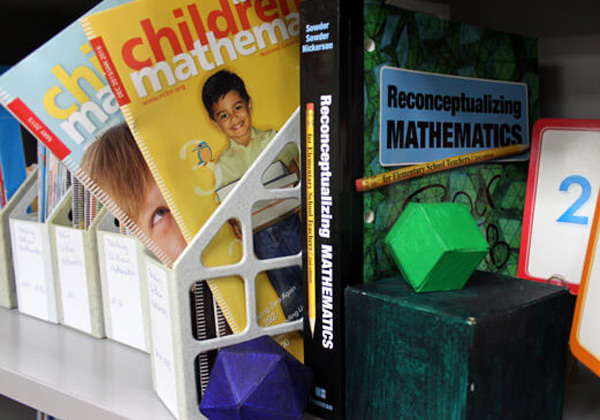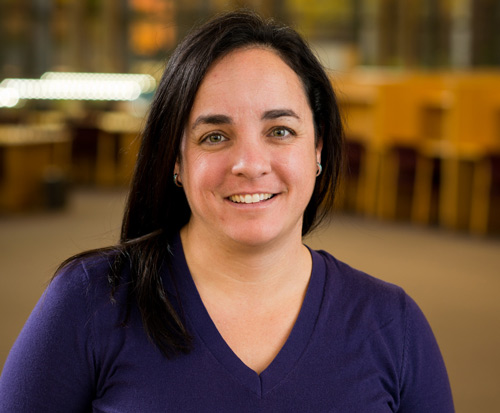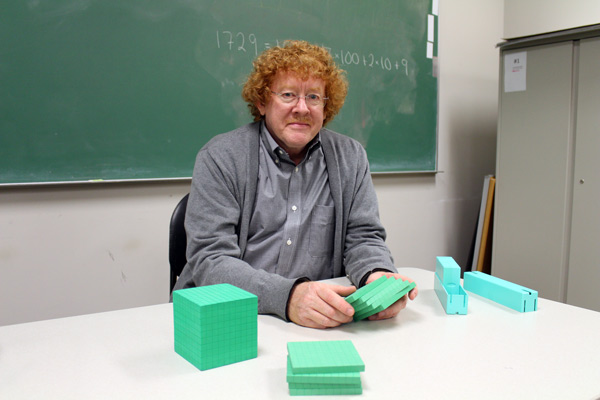For many children, trying to learn basic mathematical concepts causes frustration, fear, and recurring anxiety that keeps them from building competence in the subject. When teachers harbor those same feelings, stemming from the way they learned math in school, then their enthusiasm for teaching math in their own classrooms is hampered.
Intending to help prepare current teachers to build a stronger foundation of basic mathematics for preschool and elementary-aged children, the University of Michigan-Flint is launching a new Master of Arts in Mathematics Education for Elementary and Early Childhood Educators beginning Summer 2017.
The new graduate program within the School of Education and Human Services is the first of its kind in Michigan because it targets the instructional needs of early childhood and elementary school teachers who are tasked with the challenge of introducing mathematics to young children in a way that decreases frustration and anxiety associated with learning math and generates positive learning experiences.
“This new master of arts degree is a 35-credit cohort program taught by our faculty who are experts in the field of early childhood and elementary mathematics and pedagogy,” said SEHS Dean Bob Barnett. “Getting this degree will help teachers to improve their students’ overall achievement in math as well as their readiness for math-intensive careers. Teachers will have the knowledge and skills to teach math more effectively or to advance and become math specialists in their district.”
Leading the program are experienced professional math educators with doctoral degrees who will teach proven, research-based strategies that graduate students can use in their classrooms to help young children develop mathematical mindsets that build on the basics. Coursework also deeply examines topics in early childhood and elementary mathematics, such as numeracy, matching, patterns, spatial relationships, additive reasoning, geometry, multiplicative reasoning, and fractions.
Program leaders point out that math teaching and learning strategies have modernized away from the tedious memorization techniques and high-pressure, timed assignments that restrict opportunities for students to learn from their mistakes and to conceptualize math problems in visual and other ways.
“Research shows that when children have an opportunity to learn from their math mistakes, they develop a growth mindset,” said UM-Flint education assistant professor Elizabeth Cunningham. “Being able to make sense of number combinations in flexible ways and to approach numbers in visual ways helps to erase some of the fear that comes with learning math.”
UM-Flint education associate professor Matthew Wyneken serves as the president-elect of the Michigan affiliate for the Association of Mathematics Teacher Educators and is a leader of the new UM-Flint graduate program. “If students don’t get a good math foundation in their early learning years, by the time they are in middle school, we will have lost them,” he said. “Our curriculum is designed to support sustained mathematical learning into the middle school years and beyond.”
“Our program is for elementary and early childhood educators who would like to improve their teaching of mathematics,” Wyneken said. “They may already have a solid background in teaching math and want to become a specialist in their district, or they may have little experience teaching math and want to get started.”
The course schedule is designed in a mixed-mode structure, offering both online and face-to-face classes in small cohorts, accommodating the busy lives of working professionals.



